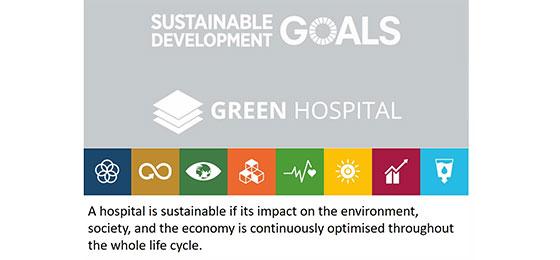Completed research project: Resource efficiency in Swiss hospitals
19.07.2021
The research project conducted by Matthias Stucki and his team at the Zurich University of Applied Sciences (ZHAW), the Institute for Economic Studies Basel (IWSB) and Fraunhofer Institute for Material Flow and Logistics (IML) analysed the resource efficiency in Swiss hospitals.
The ZHAW assessed the environmental footprint of an average Swiss hospital. The results for the environmental impact showed that energy consumption, catering as well as the building infrastructure account for about 70% of the footprint of hospitals. Depending on the hospital, there is considerable improvement potential in the areas of energy consumption and catering. For the latter, IML found that the digitization of order systems and replacement of meals with more environmentally friendly choices are impactful changes.
The efficiency analysis of IWSB found that 50% of Swiss hospitals could reduce their environmental impact by nearly 50% without reducing the amount of health care provided. Particularly, there is a high potential for environmental impact reduction in terms of heating.
The researchers from IML and ZHAW conducted active dialogues with more than 30 representatives of Swiss hospitals, such as the hospital GZO in Wetzikon, the Insel Group in Berne, the Cantonal Hospital of Grisons and the Geneva University hospitals.
Peer-reviewed publications of the research project: Keller, R., Muir, K., Roth, F., Jattke, M., & Stucki, M. (2021). From bandages to buildings: identifying the environmental hotspots of hospitals. Manuscript submitted for Publication.
